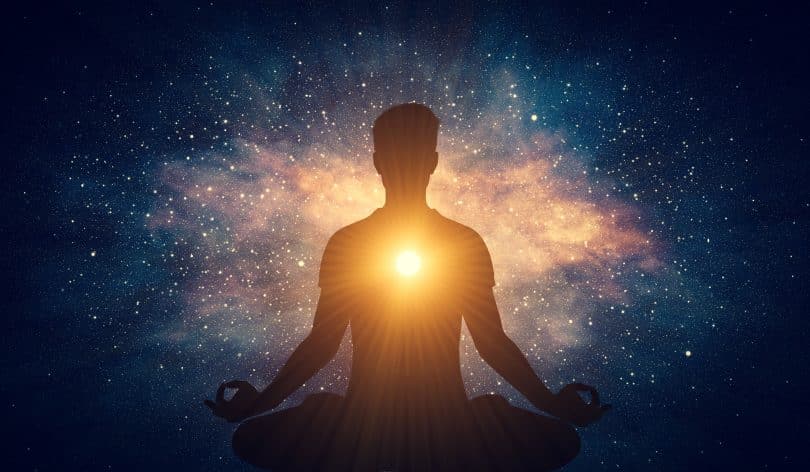Meditation and the art of mindfulness is a skill that can take a lifetime to master. In fact, the idea behind it is that you cannot really ever finish or complete it. But those that have spent long periods of time using their breath and concentration to meditate will know that it can feel just as powerful as a drug. Perhaps even more so.
Meditation has been practiced for centuries in many different cultures and religions as a way to improve mental and physical well-being. Only in recent years, scientific research has begun to shed light on the powerful effects of meditation on the human body and mind. It has been found that it can be just as powerful as a drug in terms of its ability to improve various aspects of health and well-being, but also its ability to connect us with the universe and consciousness. Let’s find out more.
What is Meditation?
Meditation is another millennial word that means many different things to many different people. Of course everyone is aware of its spiritual essence, and its religious background. But what really is it? When mindfulness apps like Headspace and Waking Up came into existence in the last few years, it was the first time that meditation became available to the masses.
Whilst it was positive that more people were practicing the skill, it also slightly skewed the idea of what meditation is. These apps presented it as a quick fix technique, something that can be done for 10 minutes every so often to help with small life anxieties. Of course this is the case, but ultimately meditation is a life journey. It never ends. There is a lot more to it. But let’s discover what it really is and how it might have the power of real drugs.
Meditation is a practice in which an individual uses a technique, such as focusing their mind on a particular object, thought, or activity, to train attention and awareness, and achieve a mentally clear and emotionally calm and stable state. It has been practised for centuries in many different cultures and religions, including Buddhism, Hinduism, and Taoism. Huff Post writes:
“Meditation rids the mind of the defilement of delusion, or ignorance; reducing bias, envy, and other factors that cloud our mind and judgment. By increasing our awareness and mental clarity, right meditation actually makes it so our view becomes more right.”
There are many different types, each with its own set of techniques and practices. Some common forms of meditation include mindfulness meditation, which involves focusing on the present moment. There is also transcendental meditation, which involves repeating a mantra to oneself. Also there’s loving-kindness meditation, which involves sending feelings of love and compassion to oneself and others. Each has their own benefits and purposes, but ultimately they promote the idea of acceptance and love for yourself and everyone around you.
History
The origins of meditation can be traced back to ancient civilizations in India and China. It was first mentioned in Hindu scriptures dating back to 1500 BCE, and it was later adopted and developed within the Buddhist tradition. In the West, meditation was introduced in the 1950s, when Indian spiritual teacher Maharishi Mahesh Yogi began teaching the practice in the United States.

Since then, meditation has become increasingly popular and is now practiced by people all over the world, especially due to apps mentioned before such as Headspace. Even the Beatles enjoyed meditation in the 60s as they searched for something even more trippy than hallucinogenic drugs. When John Lennon was asked about his experience with drugs vs meditation he said:
“There was no going further. What (drugs) does is mainly finding out about yourself, your ego. With acid it is all about yourself. /—/ The thing is that your true self is at a deeper level. And the way to approach it is through meditation.”
The Beatles and many other drug users turned to meditation in the search of something more. A desire to understand themselves and their place in the universe without the need of substances. They were realising that the goal of meditation is to cultivate a sense of inner peace, calm, and clarity, and to similarly cause ego-death. The ego causes us many of the pains we feel in life. But meditation can highlight our interconnectivity with the rest of humanity and the hidden beauty in the world.
Drugs vs Meditation
Meditation has many similarities to certain drugs, which makes the activity just as powerful. In the busy world we live in – full of hectic schedules and endless social media times – it is sometimes hard to realize what mindfulness and breathing exercises can do. We’re so used to finding pills and medication to treat all of our ailments, when before science many were using other means. Meditation is like an ancient medicine.
Higher Power
For those who have taken psychedelic drugs – such as acid, magic mushrooms or even toad venom – they’ll know the power these substances can have. The entire fabric of reality can be turned on its head. These drugs can take you out of the confined world you were in and into a place with no limits. Everything is one. Nothing matters in the way it did. It might sound scary, but there is something incredibly reassuring about the idea that life goes on beyond us.
But, at the same time, we will never truly die. Our energy is in everything, and will be forever. Meditation can trigger the exact same feelings. The Buddhist ideas of oneness and universal love are essentially identical. Meditation allows us to reach this higher power, or higher understanding, whatever words you want to use. Although it does not require any substances or chemicals to make this happen. Whilst it may not feel as intense as an LSD trip, a lifetime of meditation can have similar effects. Some that, perhaps, may feel even stronger or more pure than a drug.
Mental
It isn’t only the recreational use of drugs that people see meditation as similar to. It has been proven to have genuine effects on mental and physical health, just like other actual western medicines. One of the most well-known benefits of meditation is its ability to reduce stress and anxiety. In a study published in the Journal of the American Medical Association, mindfulness-based stress reduction, a form of meditation that involves paying attention to the present moment, was found to be effective in reducing anxiety, depression, and stress in a group of patients with anxiety disorders.
Another study published in the Journal of the American Academy of Child and Adolescent Psychiatry found that mindfulness meditation was effective in reducing anxiety and depression in adolescents. In addition to reducing stress and anxiety, meditation has also been found to have a number of other health benefits. For example, it has been found to improve sleep, boost the immune system, and even lower blood pressure. If stress has the ability to physically harm us over time, then surely meditation can do the opposite.
Physical
In addition to its cognitive benefits, meditation has also been found to have a number of physical health benefits. For example, it has been found to improve symptoms of irritable bowel syndrome (IBS) and reduce chronic pain. In a study it was found to be effective in reducing pain intensity and improving quality of life in patients with chronic low back pain. Mental and physical are not so different, although modern science seems to like dividing them. Our mental state can quickly affect our physical one, and vice versa. Meditation has the power to cause us benefits, just like tangible drugs can.
Conclusion
Meditation is an ancient tradition, one that outlives western medicine by a long way. Whether it’s used recreationally or medically, drugs are not the only answer. We lived for centuries on other means, and meditation has more power to heal our mental and physical beings than we give it credit for. It has been found to be effective in reducing stress and anxiety, improving sleep, boosting the immune system, lowering blood pressure, improving cognitive function, and reducing chronic pain.
While more research is needed to fully understand the mechanisms behind the powerful effects of meditation, it is clear that it can be a valuable tool in improving overall health and well-being. It is important to remember that it’s never too late or early to give the activity a go yourself. In fact, it might just change your life.
Hey there, Awesome! Thank you for being a part of Cannadelics.com; our independent news site that covers the most interesting stories in the cannabis and psychedelics landscapes. Chill with us daily to get your news injection, and subscribe to the Cannadelics Weekly Newsletter, to ensure you’re always first to get the story.









